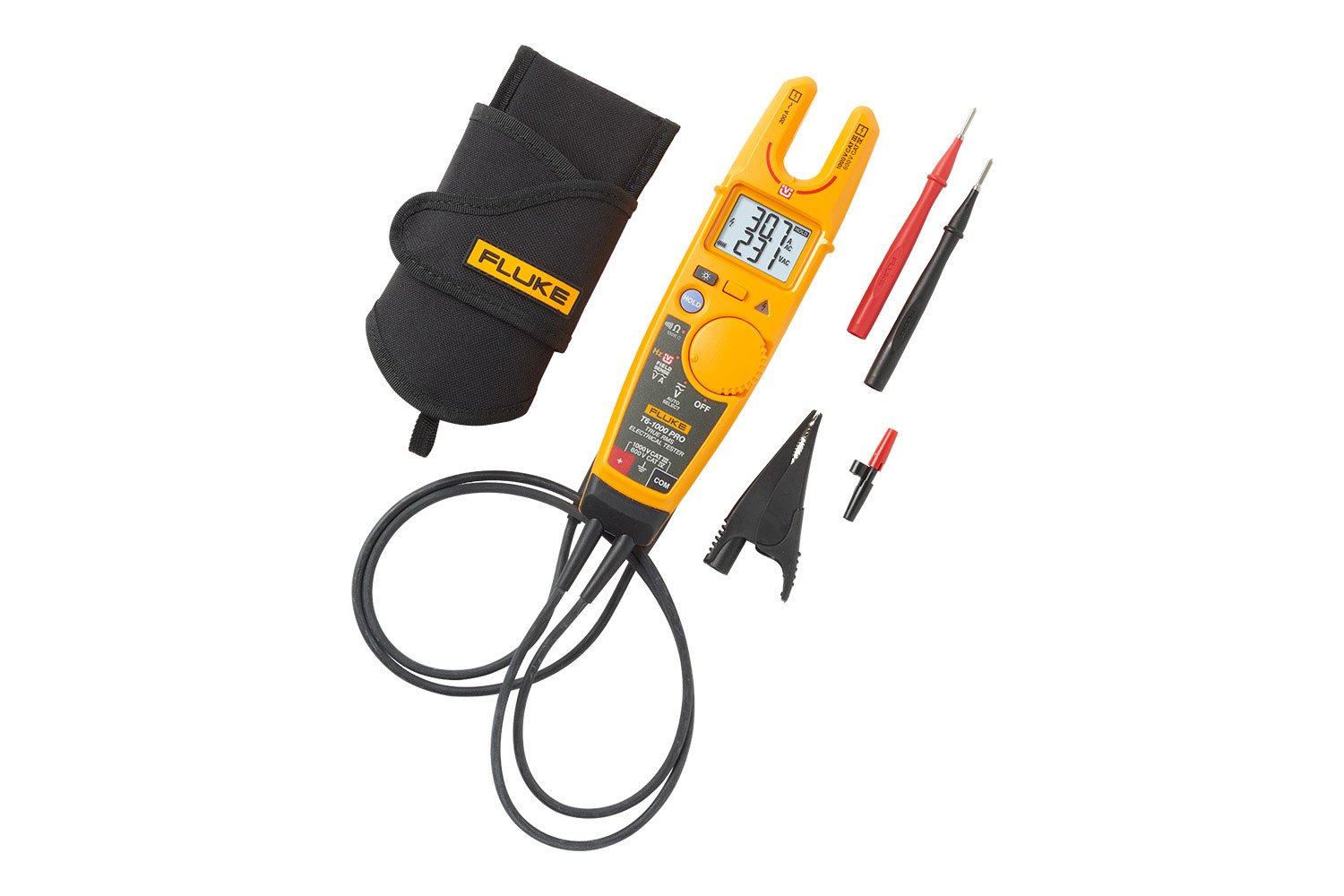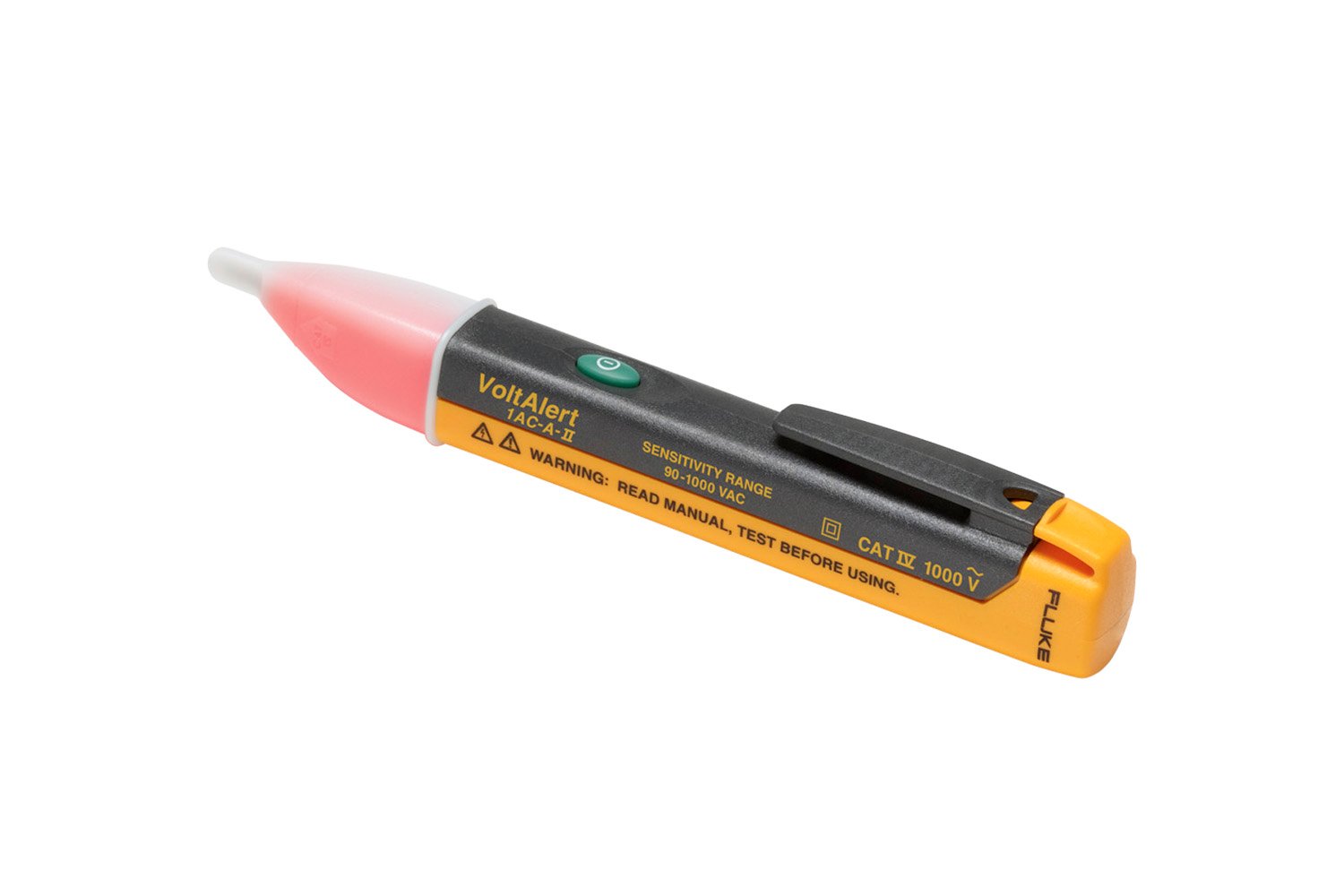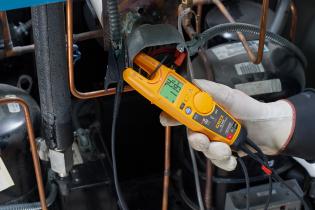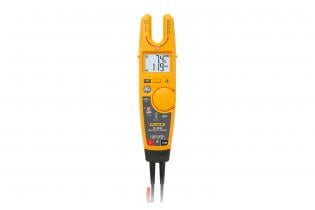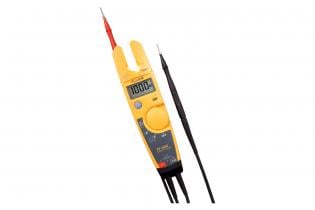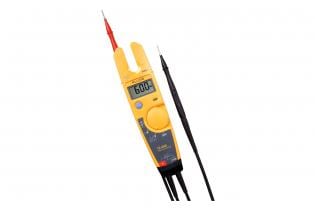Elektrische testers en spannings- en doorgangstesters
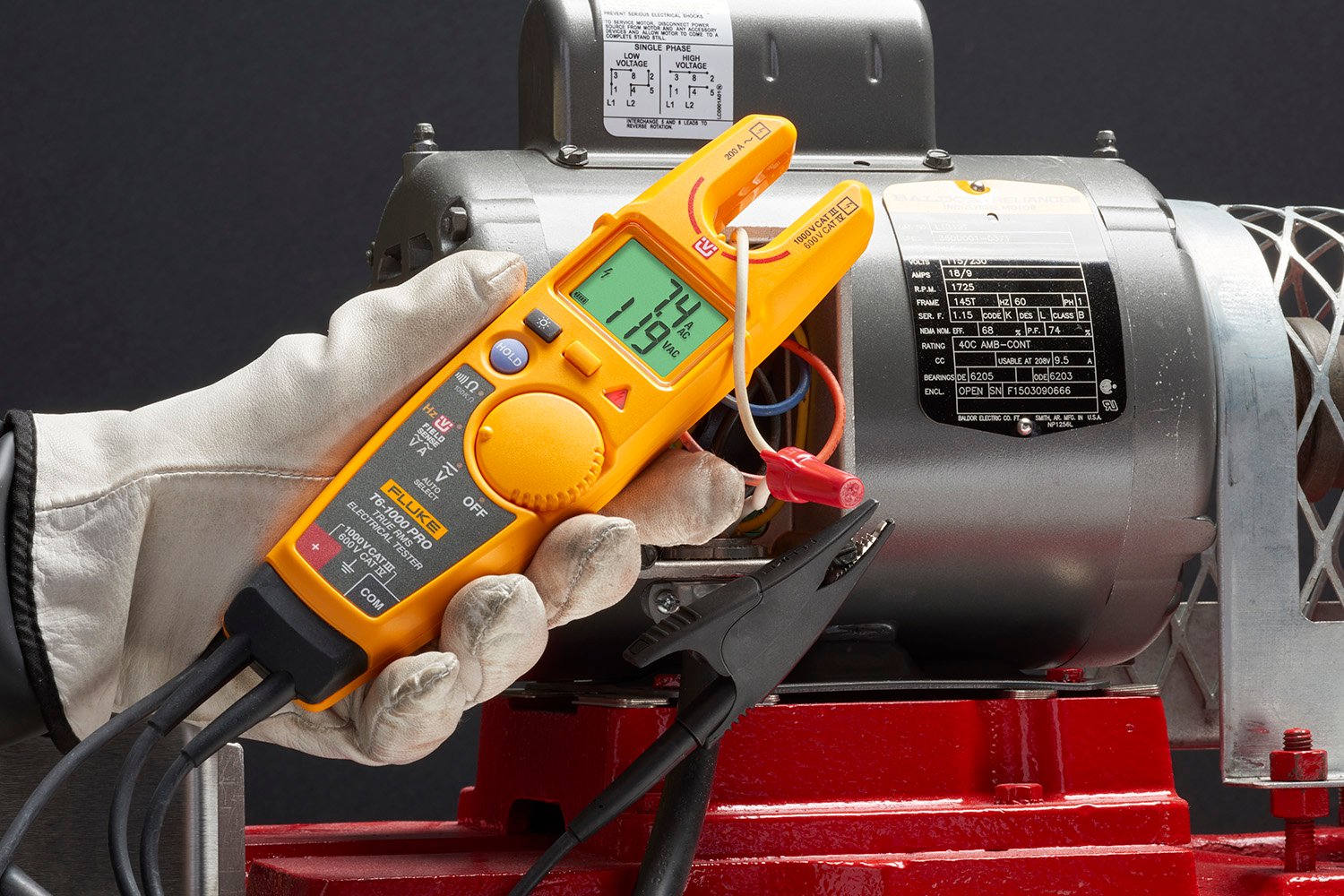
De serie elektrische testers en spanningsdetectoren van Fluke is ontworpen voor gebruik in elke toepassing en in vrijwel elke omgeving. Van contactloze spanningsdetectoren en spanningstesters met doorgangsmelders tot open-jaw stroomtesters en open-vorktesters met FieldSense®-technologie (voor spannings- en stroommetingen zonder meetsnoeren), deze testers zijn nauwkeurig, veilig en eenvoudig in gebruik. U vindt er ook motorfaserotatietesters, tl-verlichtingstesters en spanningsmeters die veiliger zijn dan elektromagnetische testers.
Deze instrumenten horen aan uw gereedschapsriem. Als u ze eenmaal hebt, zult u zich afvragen hoe u ooit zonder hebt gewerkt.
Oplossingen voor elektrische testers en spanningzoekers
Test snel op aanwezigheid van spanning, hoeveel en welke stroom een draad voert. U hebt deze antwoorden nodig bij het opsporen en verhelpen van problemen met elektriciteit.
Fluke T6-1000 PRO elektrische tester
T6-1000 PRO true-RMS elektrische tester met aardeclip en riemholster
T6-1000 elektrische tester, 1000 V AC
U kunt nu spanningen meten zonder meetsnoeren. Werk veiliger, sneller, efficiënter en overal.
Tweepolige spannings- en doorbeltesters van Fluke
De nieuwe tweepolige spannings- en doorbeltesters van Fluke zijn aangepast aan uw eigen...
T6-600 elektrische tester
U kunt nu spanningen meten zonder meetsnoeren. Werk veiliger, sneller, efficiënter en overal.
Fluke T5-1000 Elektrische tester
Met de elektrische testers T5 van Fluke kunt u spanning, doorgang en stroom testen met één compact...
Fluke T5-600 Elektrische tester
Controleer spanning, doorgang en stroom met de Fluke T5 600 V. Alleen spanning, weerstand of stroom...
Fluke 9040 faserotatie-indicator
De Fluke 9040 is geschikt voor het meten van faserotatie overal waar driefasevoedingen worden...
Fluke 1AC II VoltAlert™ Electrical Tester
De nieuwe generatie VoltAlert™ contactloze wisselspanningszoekers van Fluke zijn eenvoudig in het...
Fluke 2AC VoltAlert™-spanningzoeker
De 2AC is het nieuwste product binnen het VoltAlert™-assortiment contactloze wisselspanningzoekers...
Fluke 9062 motor- en faserotatie-indicator
De unieke Fluke 9062 geeft het draaiveld en de rotatie van motoren weer en biedt de voordelen van...
LVD2 spanningzoeker/zaklamp
Contactloze wisselspanningzoeker en LED-zaklamp gecombineerd in één gebruiksvriendelijk, penvormig...
Fluke PRV240 Proving Unit
Met deze draagbare testeenheid in zakformaat kunt u uw meetinstrumenten eenvoudig en veilig...
Elektrische testerkit met holster en 1AC II-spanningszoeker
Spannings-, doorbel- en stroomtesterkit met holster. De 1AC wordt gratis meegeleverd.
TL80A Basisset elektronische meetsnoeren
Eén stel (rode, zwarte) meetsnoeren van 1 krokodillenklem en meetpenverlengstuk.
